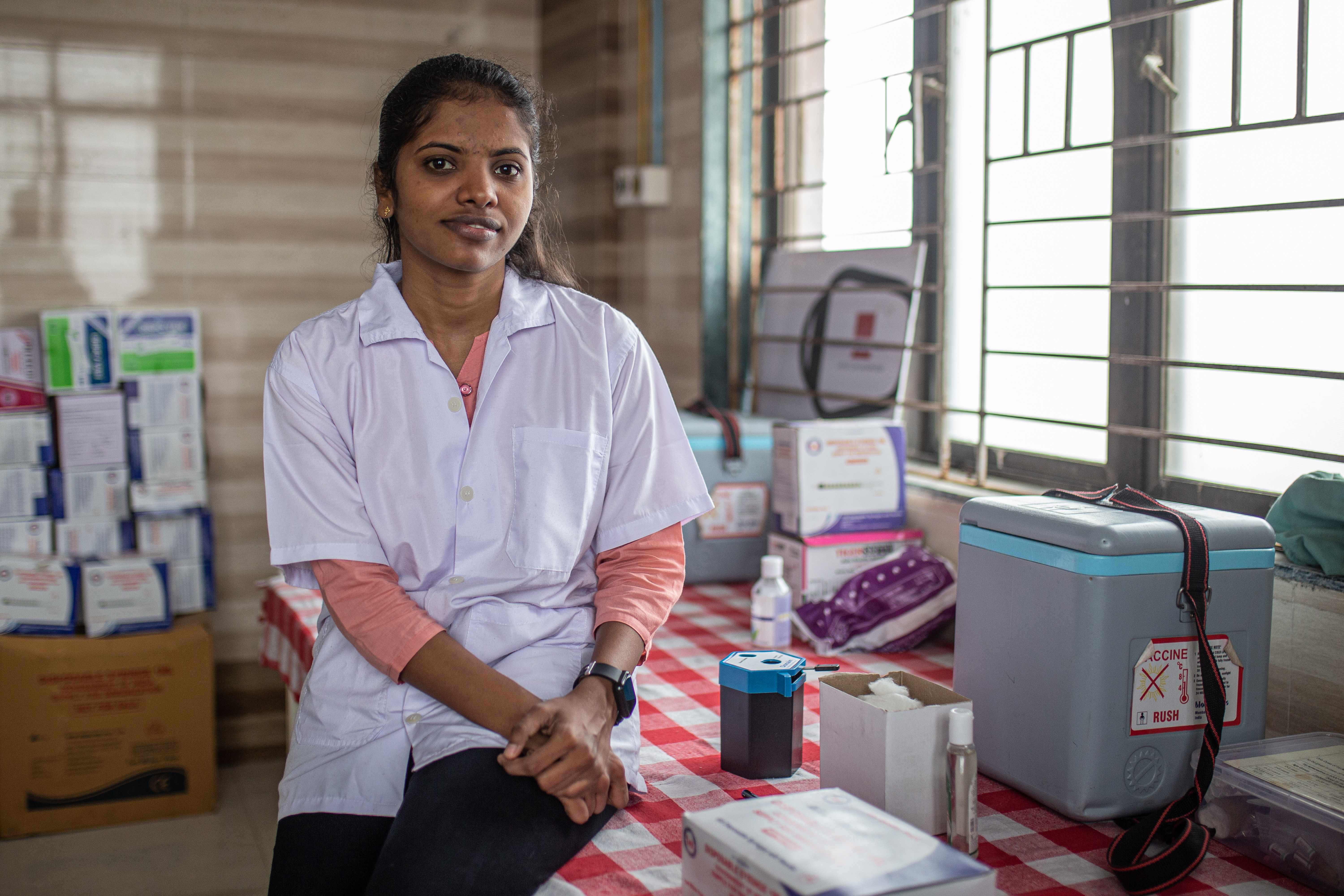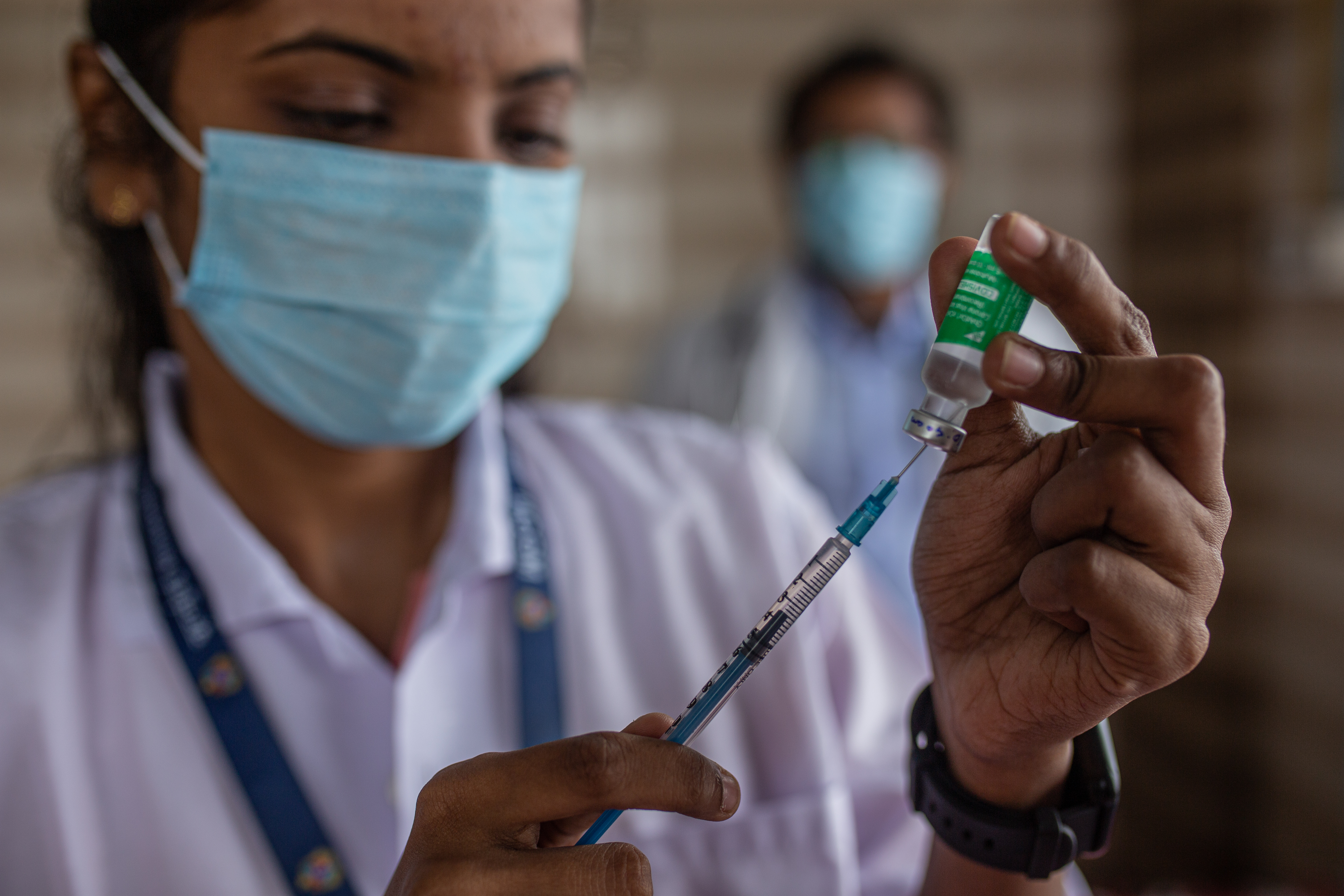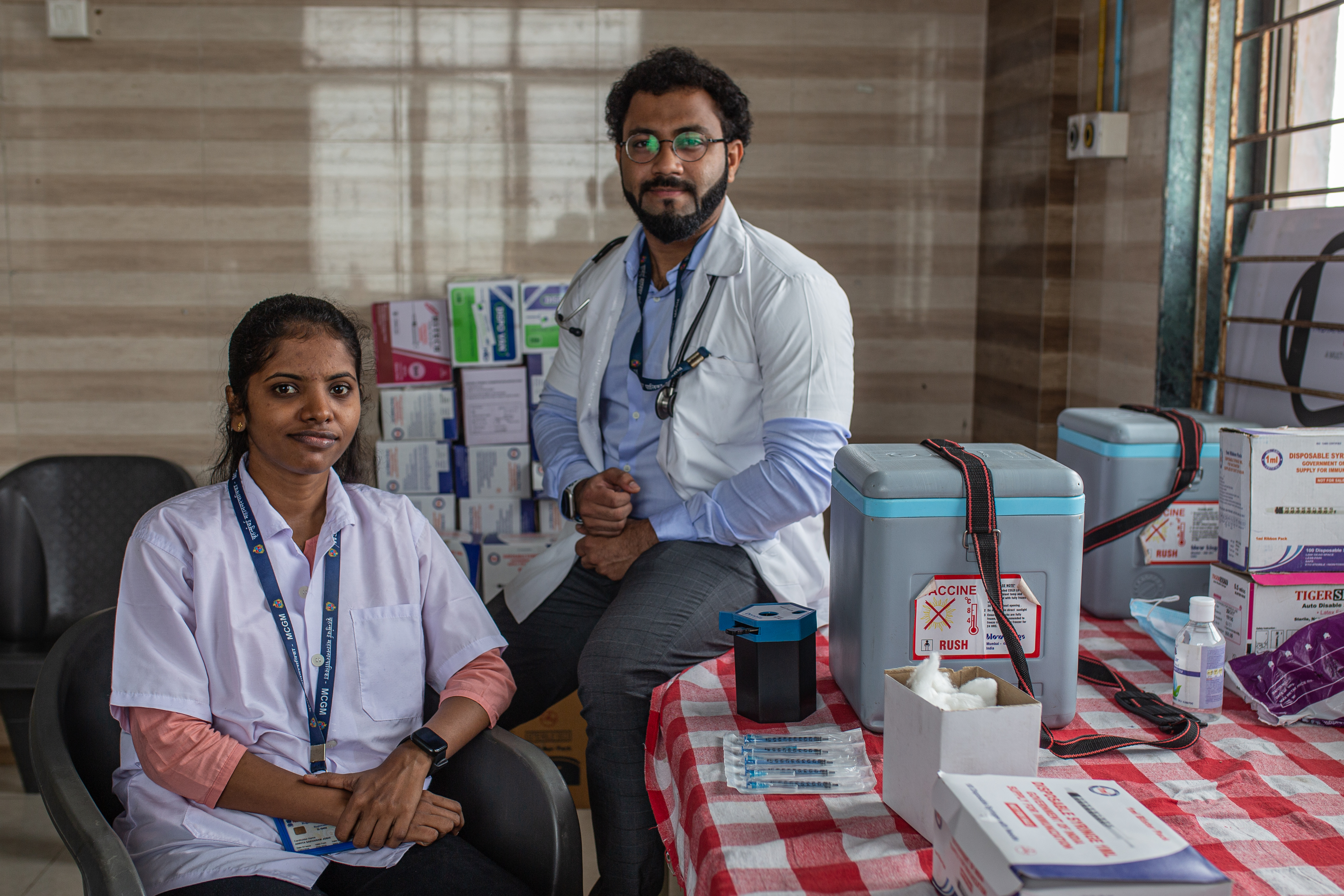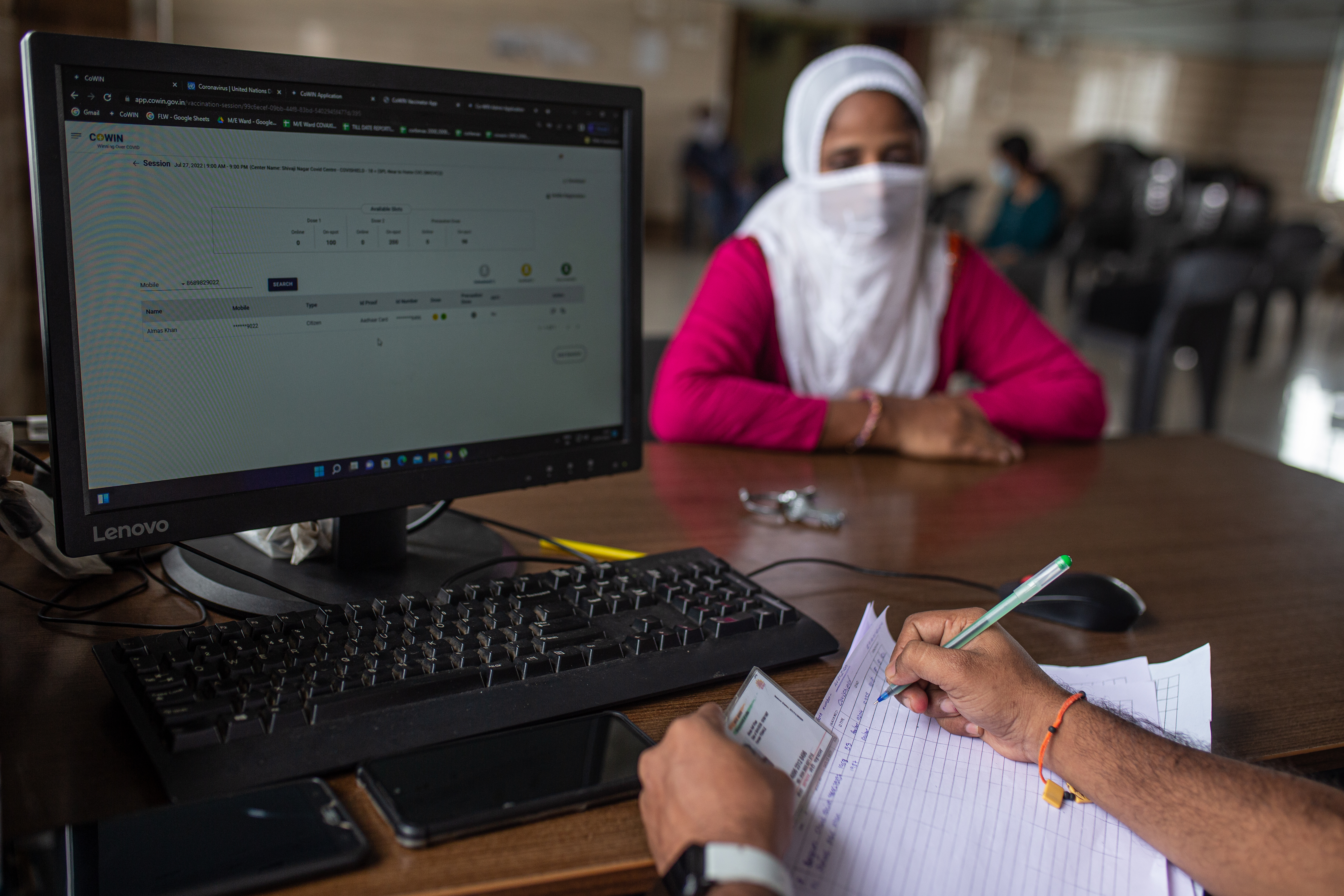Vaccinating a billion: Contributions of the silent health care worker
November 3, 2022

Ankita, an Auxiliary Nurse Midwife, has been working at a Primary Health Centre in Mumbai, vaccinating people against Covid-19
Two and a half hours – that is how long it takes on a flight from Mumbai, the financial capital of India to Bagdogra, a gateway to picturesque tourist destinations in the Northeast of the country, over 2,200 kilometres away.
That is also how long it took 25-year-old Ankita, a healthcare worker, to reach the primary health centre where she worked in Mumbai’s Maharashtra Nagar, less than 20 kilometres away from her home, when travel restrictions were in place during the Covid-19 pandemic.
Despite hardships, millions of healthcare workers like Ankita, an Auxiliary Nurse Midwife (ANM), have been at the forefront of the fight against the pandemic, be it in hospital wards during Covid-19 surges or now, administering life-saving vaccines.
Since vaccination was found to be the most effective measure in reducing the severity of the disease, the Government of India focussed on vaccinating its entire population in the shortest possible time. However, vaccinating a billion plus population was an up-hill task.

Vaccinating a billion plus population against Covid-19 has been a challenging task
The government partnered with the United Nations Development Programme (UNDP) to design a tech solution to do this – quickly and effectively. Enter Co-WIN, a digital interface that helps programme managers plan and execute vaccination sessions and enables people to book an appointment with ease.
Armed with Co-WIN, which also streamlined the Covid-19 vaccine supply chain, frontline workers like Ankita led the charge of vaccinating India against the deadly disease.
At the Shivaji Nagar Community Vaccination Center (CVC), Ankita and her team members, Medical Officer, Dr. Pratik Tawde and data entry operator, Sumit Yadav, worked day and night in a neighbourhood that is home to an economically vulnerable population.
“Last year, when I was asked to join the vaccination team, I felt the end of the pandemic was in sight. We had seen very tough days – the lockdown, and the financial difficulties that came with it. But with this, I found a glimmer of hope,” recalls Ankita.
Since the start of the pandemic in 2020, Mumbai witnessed multiple surges of Covid-19 infections, resulting in high hospital admissions and fatalities. Vaccinating its eligible population – especially those in high-risk groups – at the earliest was essential.

Millions of healthcare workers have been at the forefront of the fight against the pandemic
Co-WIN, which became the digital backbone of India's Covid-19 vaccination programme, helped healthcare workers administer vaccines, from the slums to the poshest neighbourhoods of Mumbai.
The results were there to see thanks to the commitment of healthcare workers like Ankita and the powerful Co-WIN platform. Today, India has administered more than 2 billion Covid-19 vaccine doses since its launch in January 2021.
But it was not a smooth ride for the people driving the world’s largest vaccination drive. One of the biggest challenges they faced was vaccine hesitancy. Fake news about vaccines causing impotency in men and deaths circulated on social media and messaging platforms kept many away from vaccination camps.
“We had to explain to people that these were just rumours and that vaccines could save their lives. Grassroot organizations also helped us in bringing a change in the attitude of the people. Soon, people started queuing up for vaccinations,” says Ankita.
Such dedication spurred Ankita and her colleagues to mobilize the community and they have together administered 112,932 doses till July 2022.

Co-WIN, the digital backbone of India's Covid-19 vaccination programme, helped in the administration of 2 billion plus vaccine doses in record time
Dr. Tawde shares that Co-WIN's digital approach helped optimize and scale up the vaccination process. CO-WIN streamlined tedious processes, such as registration, document verification, tracking beneficiaries for vaccination and even reporting.
“It made it possible to vaccinate up to 1000 beneficiaries a day. We could also vaccinate bed-ridden patients in their homes,” says Dr. Tawde.
The foundation of Co-WIN began over six years ago when the Ministry of Health and Family Welfare began digitizing the vaccine supply-chain network using mobile technology. This digital platform called the Electronic Vaccine Intelligence Network (eVIN) was set up with support from Gavi, the Vaccine Alliance, and implemented by UNDP.
Today, UNDP has trained over a million frontline workers across the country to use the Co-WIN platform.
Ankita, who started working as an ANM when she was just 23, continues to work with the same fervour as before. Her resilience caught the eye of government officials, who moved her to COVID-19 vaccination efforts.
“My mother was also an ANM and I have also been inclined towards public health. The work is tough but I get a sense of satisfaction helping those who can’t afford to go to private clinics. But thankfully now, I don’t have to travel two and half hours to reach here,” smiles Ankita as she opens a vial to administer vaccine to a group of people.

 Locations
Locations